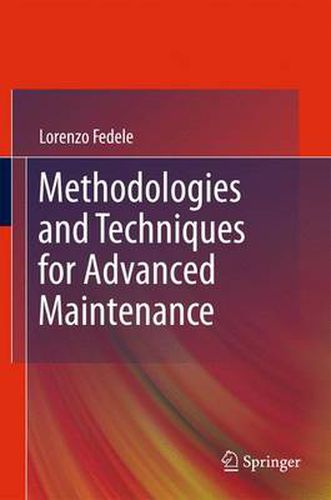Readings Newsletter
Become a Readings Member to make your shopping experience even easier.
Sign in or sign up for free!
You’re not far away from qualifying for FREE standard shipping within Australia
You’ve qualified for FREE standard shipping within Australia
The cart is loading…






This title is printed to order. This book may have been self-published. If so, we cannot guarantee the quality of the content. In the main most books will have gone through the editing process however some may not. We therefore suggest that you be aware of this before ordering this book. If in doubt check either the author or publisher’s details as we are unable to accept any returns unless they are faulty. Please contact us if you have any questions.
The management of technical plants for productivity and safety is generally a complex activity, particularly when many plants in one territory are affected, quality guarantees and cost results are required, and the technology involved is heterogeneous and innovative.
To enable readers to manage technical plants efficiently, despite the above complications, Methodologies and Techniques for Advanced Maintenance presents theories, methodologies and practical tools for the realization of an intelligent maintenance management system for distant monitoring. It also covers the development and running of a remote control center. The so-called granted availability management system (GrAMS) was conceived to enable organizations involved in technical-industrial plant management to move towards well known availability and zero failures management.
In particular, Methodologies and Techniques for Advanced Maintenance deals with the diagnostic aspects and safety levels of technical plants (such as elevators, thermo-technical plants, etc.). The author also discusses the usage of ad hoc designed software analysis tools based on neural networks and reliability indicators.
Methodologies and Techniques for Advanced Maintenance is a useful text for practitioners and researchers in maintenance and facilities. Its application spans industrial, plant, technological, infrastructure and civil fields.
$9.00 standard shipping within Australia
FREE standard shipping within Australia for orders over $100.00
Express & International shipping calculated at checkout
This title is printed to order. This book may have been self-published. If so, we cannot guarantee the quality of the content. In the main most books will have gone through the editing process however some may not. We therefore suggest that you be aware of this before ordering this book. If in doubt check either the author or publisher’s details as we are unable to accept any returns unless they are faulty. Please contact us if you have any questions.
The management of technical plants for productivity and safety is generally a complex activity, particularly when many plants in one territory are affected, quality guarantees and cost results are required, and the technology involved is heterogeneous and innovative.
To enable readers to manage technical plants efficiently, despite the above complications, Methodologies and Techniques for Advanced Maintenance presents theories, methodologies and practical tools for the realization of an intelligent maintenance management system for distant monitoring. It also covers the development and running of a remote control center. The so-called granted availability management system (GrAMS) was conceived to enable organizations involved in technical-industrial plant management to move towards well known availability and zero failures management.
In particular, Methodologies and Techniques for Advanced Maintenance deals with the diagnostic aspects and safety levels of technical plants (such as elevators, thermo-technical plants, etc.). The author also discusses the usage of ad hoc designed software analysis tools based on neural networks and reliability indicators.
Methodologies and Techniques for Advanced Maintenance is a useful text for practitioners and researchers in maintenance and facilities. Its application spans industrial, plant, technological, infrastructure and civil fields.